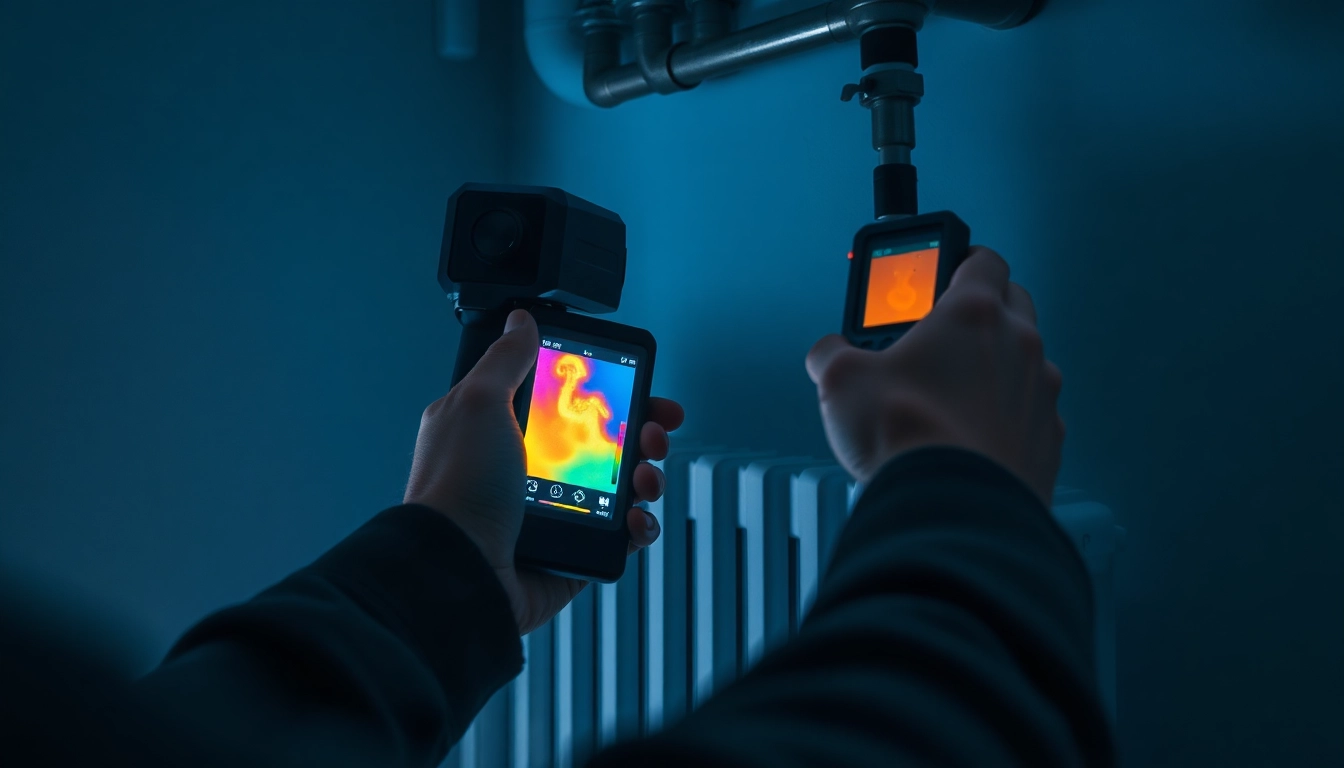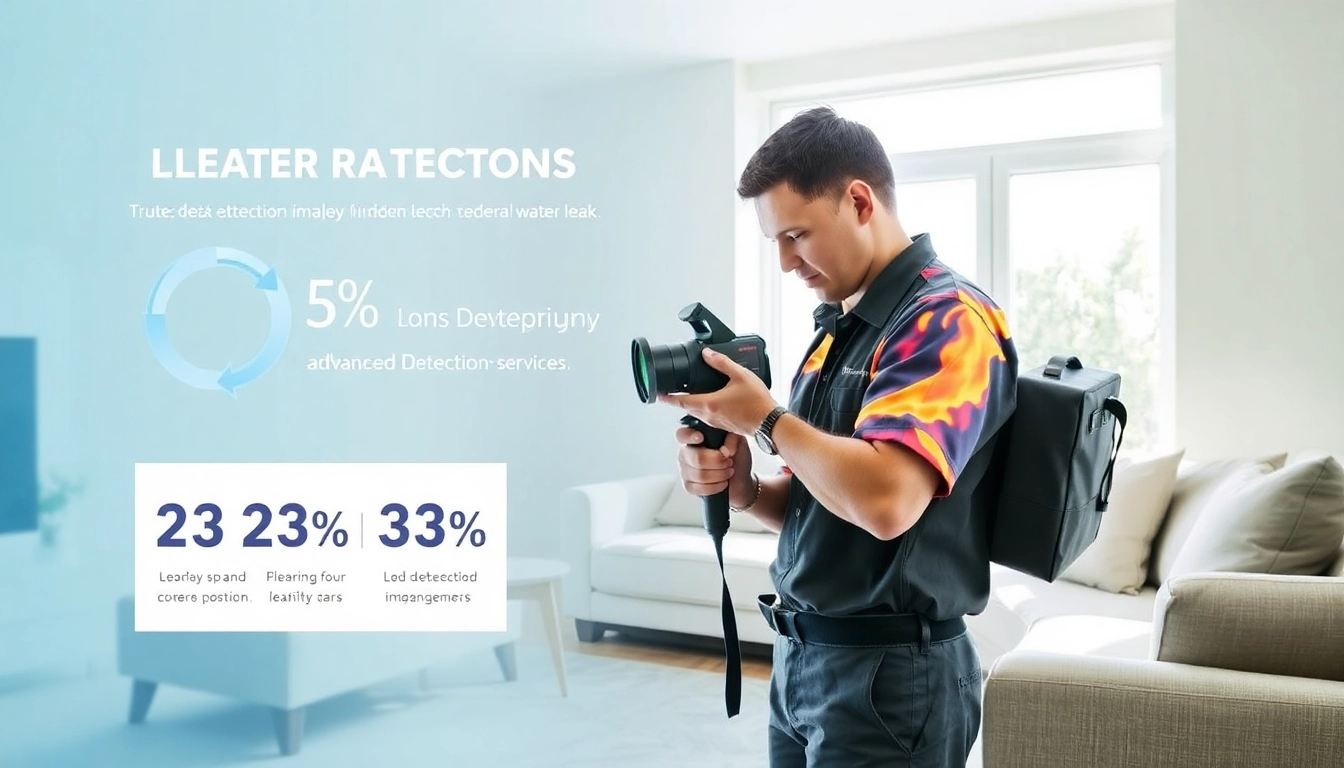Understanding Central Heating Hidden Leaks
Hidden leaks in central heating systems are a pressing concern for homeowners, as they often go unnoticed until significant damage has occurred. These leaks can lead to escalating energy bills, compromised efficiency, and even extensive property damage. Understanding the nature of these leaks, their causes, and how to effectively locate them is crucial. When exploring options, central heating hidden leak detection services can provide the insights and solutions required to protect your home and investment.
What Causes Hidden Leaks in Central Heating Systems?
Several factors can contribute to hidden leaks within central heating systems. Common causes include:
- Corrosion: Over time, pipes can corrode due to chemical reactions with water, which weakens their structure and leads to leaks.
- Joint Failures: Connections between pipes may weaken or fail, creating gaps that allow water to escape.
- Pressure Fluctuations: Sudden changes in pressure can stress pipes and lead to fractures.
- Incorrect Installation: Poorly installed systems may have inadequate seals, increasing the likelihood of leaks.
- Temperature Changes: Repeated heating and cooling can cause materials to expand and contract, leading to small fissures and leaks.
Identifying the Signs of a Central Heating Hidden Leak
Detecting hidden leaks early can save homeowners from extensive damage and costly repairs. Some signs to watch out for include:
- Increased energy bills without any change in usage.
- Unexplained drops in water pressure.
- Moisture or damp patches on walls or ceilings.
- Unusual sounds, such as gurgling or hissing, coming from radiators.
- Cold spots on radiators or uneven heating throughout the home.
Common Misconceptions About Central Heating Leaks
Many homeowners harbor misconceptions about central heating leaks that can hinder effective resolution:
- Only Old Systems Leak: New systems can also develop leaks, especially if installed incorrectly.
- Visible Damage is Always Present: Hidden leaks can occur without any visible signs on the surface.
- DIY Solutions are Always Effective: While some minor leaks can be repaired DIY, complex issues should be handled by professionals.
Advanced Techniques for Leak Detection
Advances in technology have significantly improved methods for detecting hidden leaks in central heating systems. Utilizing sophisticated techniques allows for precise identification without invasive actions.
How Thermal Imaging Cameras Work for Leak Detection
Thermal imaging cameras detect temperature variations in walls, ceilings, and floors, indicating the presence of a hidden leak. By identifying the cooler areas where water may be escaping, technicians can pinpoint leak locations with accuracy.
Utilizing Acoustic Listening Devices Effectively
Acoustic listening devices amplify the sound of water escaping from pipes, making it easier to identify leaks that are otherwise undetectable. This method is particularly effective in locating leaks buried underground or within walls.
Pressure Testing: A Reliable Method for Locating Leaks
Pressure testing involves isolating sections of the system and monitoring pressure changes to determine where a leak may exist. This method provides a clear indication of leaks without causing damage to the system.
Preventing Damage from Hidden Leaks
Regular maintenance and proactive measures are essential for preventing damage from hidden leaks in your central heating system.
Regular Maintenance Tips for Central Heating Systems
To prevent leaks and maintain efficiency, follow these maintenance tips:
- Schedule annual inspections with a qualified technician.
- Ensure all valves and connections are tight and secure.
- Flush the system periodically to remove debris and prevent sediment build-up.
- Monitor the pressure regularly and address any fluctuations.
How to Recognize Early Warning Signs
Being vigilant about early warning signs can mitigate extensive damage. Keep an eye out for:
- Damp patches or worsening water stains on ceilings or walls.
- Increased humidity levels in the home.
- Frequent boiler pressure drops that require topping up.
Emergency Steps to Take When a Leak is Detected
If a leak is suspected, immediate action is vital to prevent further damage:
- Turn off the central heating system to prevent further water loss.
- Shut off the water supply if necessary.
- Contact a professional leak detection service to assess the situation.
Expert Solutions for Detecting Hidden Leaks
When faced with a potential leak, engaging professionals offers numerous benefits, ensuring a comprehensive solution.
When to Call a Professional for Leak Detection
Consider calling a professional if you notice persistent signs of leaks, experience pressure drops, or suspect damage that you cannot clearly identify. Professionals possess the expertise and equipment necessary for accurate detection.
Evaluating DIY Options vs. Professional Services
While DIY methods may seem appealing, they often lack the precision required for effective leak detection. Professionals can utilize advanced technology and methods to ensure leaks are accurately located and repaired.
Cost-Effective Solutions for Central Heating Repairs
Repairing leaks promptly can prevent costly damage. Explore options like:
- Regular maintenance programs to identify potential issues early.
- Upgrading to more efficient systems to reduce energy costs.
- Utilizing specialist leak detection services, which often offer guarantees.
Future Trends in Leak Detection Technologies
As technology advances, the methods for detecting leaks are becoming more sophisticated, ensuring homes are safer and more efficient.
The Role of AI and Machine Learning in Leak Detection
AI and machine learning are set to revolutionize leak detection, with systems capable of learning from historical data to predict potential leak locations and automate diagnostics.
Innovative Products on the Horizon for Homeowners
Emerging products that utilize smart technology can alert homeowners to irregularities in their heating systems, providing real-time data and recommendations for maintenance or repair.
Adapting to Changes in Building Regulations and Standards
As regulations evolve, staying informed about compliance requirements is essential for homeowners. Regular system assessments can ensure adaptation to new standards, promoting safety and efficiency.


